The common diseases of chinchillas are as follows
1. Hair biting
Chinchillas bite their hair just like people bite their nails. The reason is stress, and then it becomes a habit to bite my hair whenever I feel stressed.
Whether the chinchilla is biting or not can be determined by looking at the coat of the chinchilla. If a certain part is obviously shorter, it has been bitten off. In some colors of chinchillas, the color of the bitten hair area will be significantly different from other parts of the hair.
Chinchillas may bite their fur when they feel bored, lonely or stressed.
If your chinchilla has this problem, take a closer look at how you care for it and see if there is anything wrong with it. Does he have 2 hours of free time every day? If not, provide him with this free time, he may need more. Does your chinchilla have rollers to move around in the cage? If not, install one for him to help him burn off excess energy. Then, are you prepared for toys for chinchillas? If you've never given one, give him some small toys to occupy his time.
Does your chinchilla get enough interaction time with you?
Chinchillas are social animals. If your chinchilla feels lonely in its cage, you should spend some time with it every day; it needs interaction with you. If you don't have enough time to spend with him, consider adopting another chinchilla to keep him company.
Is your chinchilla disturbed by the voice and stressed?
For example, children crying loudly, dogs barking loudly, and the sounds made by washing machines, vacuum cleaners, etc. Chinchillas are very sensitive, and these frequent bursts of sudden noises can stress them out. Check the living environment of your chinchilla and move away any things that may cause stress to him.
Has your chinchilla just experienced a change in living environment?
The fur biting may also be a reaction to the stress of losing his cage and moving to a new home. If so, giving him a quiet living environment will help calm his emotions. Providing your chinchilla with toys, exercise, and other extra attention and love as it adapts to its environment will help relieve stress.
If you have two chinchillas in a cage, it may be that one chinchilla has bitten off the other's fur. Strengthen observation to find out the real culprit of hair biting. If you find that this is indeed the case, then you can try to increase the time for both chinchillas to have air outside the cage. If this doesn't work, you may want to keep the two chinchillas in isolation before the bitten one becomes hairless.
Other reasons include dirty environment, lack of vitamins, genetics, etc.
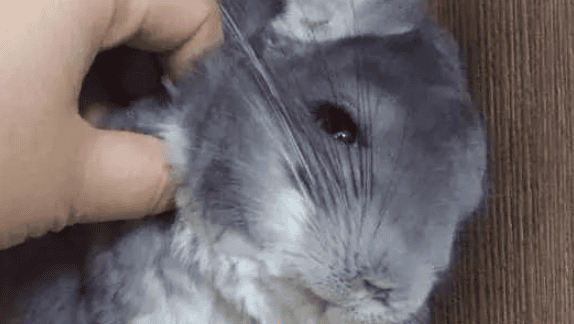
2. Fungus
Another disease that can affect chinchilla fur is fungus. These include ringworm and dermatophytes, which can cause a certain area of skin to become bald, hairless, and red. A chinchilla’s face is often a prime location for this type of bacteria.
If you suspect your chinchilla has fungus, take it to the veterinarian immediately. Such germs can quickly spread to other chinchillas, including people and other pets. Your veterinarian will diagnose the skin condition and prescribe an ointment that is primarily used to treat the condition. You'll need to disinfect your chinchilla's cage with diluted bleach to prevent the fungus from recurring.
3. Bite
Chinchillas are social animals, and most of the time they live together in peace. But sometimes chinchillas also fight with each other. Bites often occur as a result, and if the wound is not treated promptly, the wound is susceptible to infection.
If you see a bite wound on your chinchilla that looks like a bite, and the wound is not large, you can try treating it yourself with antibacterial medication (liquid, ointment, powder). Check the wound frequently to prevent infection. (Infected wounds often become red and secrete fluid and are difficult to heal.) If you suspect a wound is infected, contact your veterinarian immediately. He would bandage the chinchilla's wounds and provide the chinchilla with prescribed antibiotics. Wound infection can also be fatal for chinchillas, so act quickly when an infection is discovered and do not miss the opportunity for treatment.
4. Diarrhea
Chinchillas with diarrhea have soft and sticky stools that become flat when pinched. Diarrhea is a serious condition for chinchillas, and it is best to call a veterinarian for help immediately. Too many snacks, bacterial infections, parasites, changing staple foods and stress can all cause diarrhea.
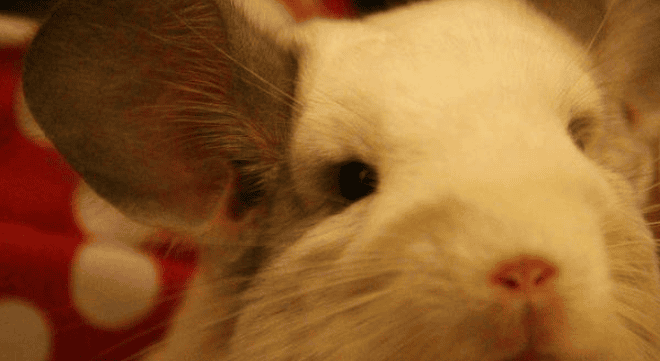
5. Drooling
If there is always a wet spot on the chinchilla's chin, he may be Drooling. Usually there is something wrong with the teeth, most likely a malocclusion. Take your chinchilla to the veterinarian for a checkup. (The author sighs: There are so many veterinarians abroad... This chapter is much less content than I expected... "See a veterinarian" has been replaced by three words... Let's just make do with it... Sigh... ..) If there is something really wrong with your teeth and you need veterinary help, you should face the problem together.
Or another reason may be that there is a wound in the mouth that causes inflammation. Generally, stomatitis will cause more smelly saliva, but it is best to take it to the hospital for examination.
6. Eye problems
Because chinchillas sleep in sawdust and bathe in sand and dust, sometimes their eyes will be irritated and cause problems. If your chinchilla keeps its eyes closed or keeps scratching its eyes with its claws, and sometimes sheds tears, then it has an eye problem. Take him to the vet to find out exactly what's causing it. It may be a small particle of dust entering the eye, it may be a scratch, or it may be a bacterial infection. Whatever the cause, your veterinarian can prescribe medications to help your chinchilla regain health.
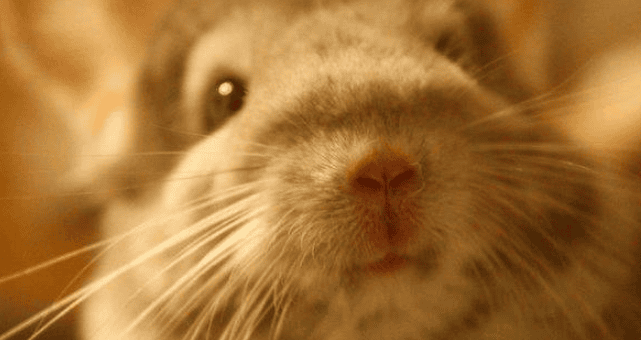
7. Constipation
The digestive system of chinchillas cannot withstand the torture, and unreasonable diet will cause Various questions. Constipation is one of them.
Chinchilla constipation is often caused by not getting enough fiber from food. If your chinchilla is constipated (small, dry stools and the chinchilla seems uncomfortable), make hay available to him at all times. Hay provides chinchillas with the crude fiber they need to keep their digestive systems working properly. Water is also important, as excessive thirst can also cause constipation.
If your chinchilla is still constipated despite normal intake of hay and water, call your veterinarian for help. Don't hesitate, as constipation may be just a symptom of other illnesses.
8. Heart disease
For various reasons, some of which may be unknown, chinchillas are prone to heart disease. Myocardial hypertrophy, cardiovascular obstruction, abnormal heart rate, heart failure, etc. have all appeared in chinchillas.
There is nothing you can do to prevent heart disease except providing water, food, exercise, free time outside the cage, and not letting your chinchilla feel stressed. By taking your chinchilla for a yearly check-up, your veterinarian can easily detect heart disease before it gets worse.
If your chinchilla seems uncomfortable - especially if it shows signs of loss of appetite, lethargy, etc. - don't hesitate to take him to the veterinarian for a physical examination.
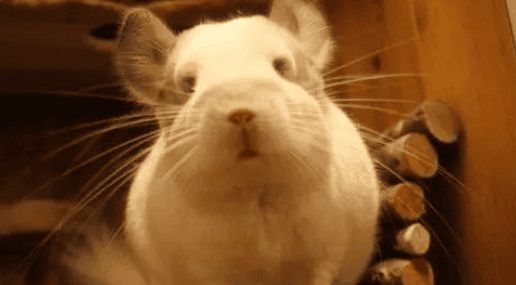
9. Heatstroke
The ancestors of chinchillas lived in the high Andes Mountains and belonged to cold zones. So they evolved thick fur to keep them warm. This can be advantageous for chinchillas if it's cooler where you live. When chinchillas are kept in an environment above 80 degrees Fahrenheit (26.7 degrees Celsius), their thick fur becomes a potential danger to them, which can easily cause them to suffer from heatstroke.
Heat stroke is very dangerous and can be fatal. When a chinchilla's body temperature is higher than normal, it can cause damage to vital organs.
If the chinchilla is in a very hot room, or is exposed directly to the sun, (please do not experiment, do not joke with the chinchilla’s life.) You see him panting and falling on his side. , then he has heat stroke. This is a critical situation. If you don't act quickly to rescue, your chinchilla will likely die. Try to let your chinchilla's body temperature drop before taking her to the vet. You can wrap his body, especially his head, with a wet and cold towel. If he regains consciousness, offer him some water to drink. If the chinchilla loses consciousness, you can immerse its body in cold water (not ice water), being careful to keep the chinchilla's head above the water. When taking your chinchilla to the vet, wrap him in a cool, damp towel.
The best way to prevent your chinchilla from heatstroke is to keep it in a cool room. If the weather is hot, the room temperature may rise. Remember to turn on the air conditioner when you are not at home. Another method is to freeze a large bottle of soda and place the bottle in the chinchilla's cage. This will also help keep your chinchilla cool.
10. Internal parasites
Chinchillas will be harassed by many parasites, including giardia, isospora, tapeworms, hookworms, roundworms, and pinworms. (If you don’t understand, you can ask Du Niang.) Each of the above can cause serious health problems to the digestive system of chinchillas.
The symptoms of this disease are usually diarrhea, lethargy, poor appearance and weight loss. (For cats and dogs, such diseases can cause vomiting, but not for chinchillas. Chinchillas are not capable of vomiting.)
Generally, only severe parasitic diseases can cause these symptoms, but Coccidia, Cryptosporidium, and Giardia can make your chinchilla very weak very quickly.
When you bring your chinchilla home for the first time, it is best to ask your veterinarian to do a physical examination. Include a fecal exam, as your pet's excrement can indicate whether they have certain medical conditions. If an examination reveals a problem, follow your veterinarian's recommendations for care and treatment.
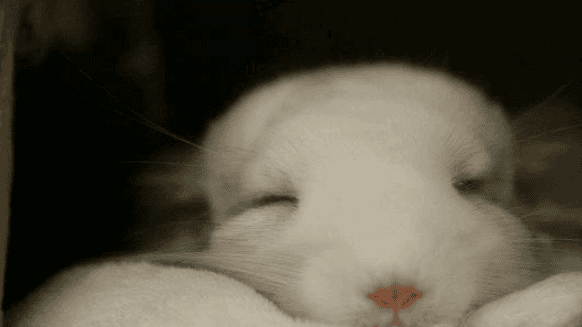
11. Listeriosis
(Provided by Du Niang: Listeria is everywhere in the environment No, Listeria can be found in most foods. Meat, eggs, poultry, seafood, dairy products, vegetables, etc. have been confirmed to be sources of serious Listeria poisoning. Causes blood and brain tissue infections, many countries have taken measures to control Listeria monocytogenes in food and formulated corresponding standards)
Chinchillas are susceptible to listeriosis. This bacteria attacks the chinchilla's digestive system and if not treated, the chinchilla will die in excruciating pain.
Listeriosis can be transmitted from chinchilla to chinchilla through feces contaminated by the bacteria. Chinchillas can also become sick due to contamination of hay by germ-carrying mice.
The patient presented with constipation, lethargy, and loss of appetite. Thankfully this bacteria will be killed if antibiotics are taken promptly. If your chinchilla shows these symptoms, take him to the vet.
12. Dental disease
Chinchilla’s teeth grow all year round. This is an easy fix for wild chinchillas, as they spend most of their time chewing on tougher plants. For domestic chinchillas, we provide them with wooden blocks and other things to chew on to help them grind their teeth and prevent them from overgrowing.
Unfortunately, some chinchillas have a dental disease called malocclusion from birth. When they bite something very hard, their teeth don't work properly.
Chinchillas may also have other dental diseases, such as tooth abscess, loose teeth, and overly pointed teeth. These will affect the normal molar of chinchillas.
If your chinchilla has a malocclusion, you may need to do some extra work to allow him to live a normal life. Your veterinarian will provide you with a clear and detailed procedure to help him live a normal life. Veterinarians can of course treat other dental problems as well.
It is important to find a good veterinarian because dental problems affect eating, which is related to his health.
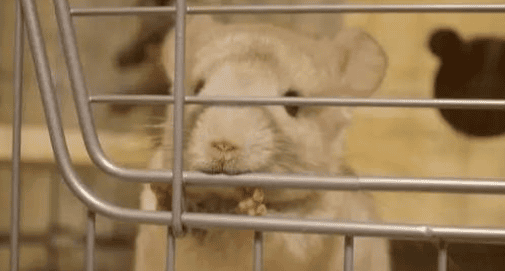
13. Respiratory diseases
Like humans, chinchillas often have problems with their respiratory systems. Pneumonia and other airborne respiratory diseases often threaten chinchillas.
Symptoms of respiratory diseases include: excessively dry or runny nose, and coughing. If not cared for correctly and promptly, it can lead to drowsiness and loss of appetite.
If detected early, this type of disease can be cured with just antibiotics prescribed by a veterinarian. Chinchillas can become moribund quickly when they become sick, so you should take your chinchilla to the vet as soon as you notice he has these problems.
14. Convulsions
Chinchillas have been known to have convulsions. This is often a sign of other illnesses, such as listeriosis, a diet deficient in calcium or vitamin B1, poisoning, head injury, or heat stroke. Sometimes epilepsy also causes convulsions, a condition in which brain waves are abnormal.
There is no single type of twitching in chinchillas, it mainly depends on what causes it. The chinchilla may be just trying to relax its stiff body inwards, or it may be lying on its side, numb and twitching uncontrollably. A swaying look is another symptom of convulsions. When a fixed position is held for an extended period of time it can cause spasms in the muscles of the feet or mouth.
15. White Teeth
Chinchillas are different from people. For them, golden teeth are a sign of health. There is no doubt that White Fang is unhealthy.
Chinchillas are born with white teeth, but as they age, their teeth will turn yellow. The white teeth of an adult chinchilla indicate that he is deficient in calcium. This condition is common in pregnant and nursing female chinchillas, but may also occur in other chinchillas, indicating that they are not eating properly.
If you find that your adult chinchilla has white teeth, talk to your veterinarian. He will recommend that you add more calcium to the chinchilla's diet.
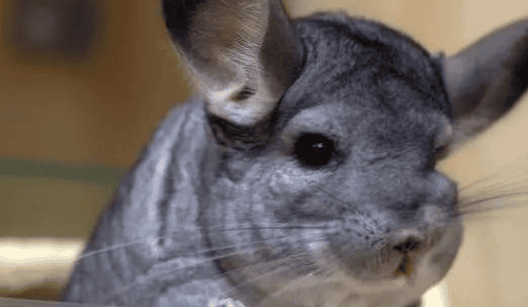
16. Ear diseases
Chinchillas' two big ears sometimes cause trouble. Parasitic mites will take up residence in his ears and then cause your chinchilla itching and allergic pain. The symptoms of mites are that the ears look dirty and waxy, and chinchillas will scratch their ears frequently. Putting mite-repelling pet gun into the chinchilla's ears can help him solve the problem of mites (it was originally a place to see a veterinarian, but I changed it because I couldn't bear it anymore).
If the inside of your chinchilla's ears look dirty but he never scratches them, then you just need to clean his ears. You can do it yourself with a cotton swab and diluted alcohol. The movements should be gentle and don't go too deep into the chinchilla's ears. You only need to do this if your chinchilla's ears look really dirty, as cleaning them too frequently can damage his ears.
If your chinchilla’s ears become dirty easily or have an unpleasant odor, ask your veterinarian to check them.
17. Shock
Like people, chinchillas can also go into shock. It is common when the body is traumatized, either due to injury or illness.
The symptoms include loss of consciousness, foaming at the mouth, and cold limbs. If your chinchilla goes into shock, you will most likely lose him if you sit back and wait without taking him to the vet. Keep your body warm and get to the pet hospital as quickly as possible.
18. Antibiotic sequelae
Antibiotics are very valuable. They can help you save the life of chinchillas threatened by germs. But antibiotics can also cause digestive system problems in chinchillas. When it kills the bacteria in the chinchilla's body, it is also destroying the probiotics in the chinchilla's digestive system.
If your chinchilla is taking antibiotics, you can also offer him yogurt or food rich in Lactobacillus acidophilus. This helps the chinchilla re-establish the digestive bacteria system in its body.
The symptoms of antibiotic sequelae in chinchillas include flatulence, diarrhea, and soft stools. After taking antibiotics, check whether your chinchilla has the above problems and provide timely care and treatment.

 扫一扫微信交流
扫一扫微信交流
发布评论